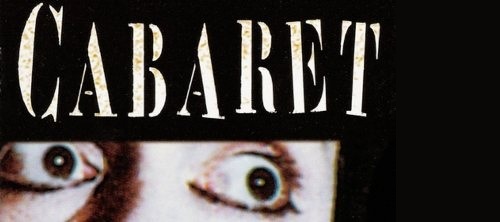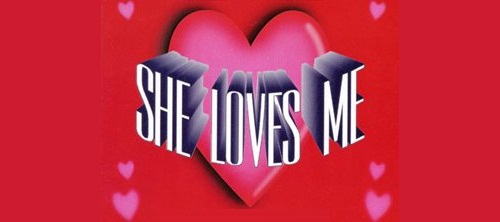Pas de biographie disponible.
Compositeur Musique additionelle Librettiste Parolier Metteur en scène Chorégraphe Producteur création Producteur version

Musical
Musique: John Kander • Paroles: Fred Ebb • Livret: Joe Matseroff • Production originale: 36 versions mentionnées
Dispo: Résumé Synopsis Commentaire Génèse
Vidéos:
Set in 1931 Berlin as the Nazis are rising to power, it focuses on nightlife at the seedy Kit Kat Klub and revolves around the 19-year-old English cabaret performer Sally Bowles and her relationship with the young American writer Cliff Bradshaw. A sub-plot involves the doomed romance between German boarding house owner Fräulein Schneider and her elderly suitor Herr Schultz, a Jewish fruit vendor. Overseeing the action is the Master of Ceremonies at the Kit Kat Klub which serves as a constant metaphor for the tenuous and threatening state of late Weimar Germany throughout the show.
Genèse: Sandy Wilson, who had achieved success with The Boy Friend in the 1950s, had completed the book and most of the score for Goodbye to Berlin, his musicalization of I Am a Camera, when he discovered producer David Black's option on both the 1951 Van Druten play and its source material by Christopher Isherwood had lapsed and been acquired by Harold Prince. Prince commissioned Joe Masteroff to work on the book, and when the two men agreed Wilson's score failed to capture the essence of late-1920s Berlin, John Kander and Fred Ebb were invited to join the project. The new version was initially a dramatic play preceded by a prologue of songs describing the Berlin atmosphere from various points of view. As the composers began to distribute the songs between scenes, they realized the story could be told in the structure of a more traditional book musical, and they replaced some of the songs with tunes more relevant to the plot. Isherwood's original characters began to change as well. The male lead became an American writer who teaches English; the anti-Semitic landlady was transformed into a tolerant woman with a Jewish beau, Herr Schultz, who owned a fruit store; two language students were eliminated; and two loathsome but integral characters - prostitute Fräulein Kost and Nazi Ernst Ludwig - were added to the mix. The musical ultimately became two separate stories in one, the first a revue centered on the decadence of the seedy Kit Kat Klub, the second a story set in the real world in which the club existed. After seeing one of the last rehearsals before the company headed to Boston for the pre-Broadway run, Jerome Robbins suggested the musical sequences outside the cabaret be eliminated. Although Prince ignored his advice, Bob Fosse did just that when he directed the film adaptation. In Boston, Jill Haworth struggled with her characterization of cabaret performer Sally Bowles. She was a blonde dressed in a white dress that suggested senior prom more than tawdry nightclub. Prince's staging was unusual for the time. As the audience filled the theater, the curtain was already up, revealing a stage containing nothing but a large mirror reflecting the auditorium. There was no overture; instead, a drum roll and cymbal crash led into the opening number. The juxtaposition of dialogue scenes with songs used as exposition and separate cabaret numbers providing social commentary was a novel concept that initially startled the audience, but as they gradually came to understand the difference between the two, they were able to accept the reasoning behind them. Original Broadway Production) After 21 previews, the original Broadway production, directed by Harold Prince and choreographed by Ron Field, opened on November 20, 1966 at the Broadhurst Theatre, eventually transferring first to the Imperial and then the Broadway before finally completing its 1,165-performance run. The cast included Jill Haworth as Sally, Bert Convy as Cliff, Lotte Lenya as Fräulein Schneider, Jack Gilford as Herr Schultz, Joel Grey as the Emcee, Edward Winter as Ernst and Peg Murray as Fräulein Kost. Replacements later in the run included Anita Gillette and Melissa Hart as Sally, Ken Kercheval and Larry Kert as Cliff, and Martin Ross as the Emcee. Original London Production The first West End production opened on February 28, 1968 at the Palace Theatre with Judi Dench as Sally, Barry Dennen as the Emcee, Lila Kedrova as Fräulein Schneider and Peter Sallis as Herr Schultz. It ran for 336 performances. 1986 London Revival In 1986, the show was revived in London at the Strand Theatre starring Kelly Hunter as Sally, Peter Land as Cliff and Wayne Sleep as the Emcee directed and choreographed by Gillian Lynne. 1987 Broadway Revival The first Broadway revival opened on October 22, 1987, with direction and choreography once again by Prince and Field. The revival opened at the Imperial Theatre, eventually transferring to the Minskoff to complete its 261-performance run. Joel Grey received star billing as the Emcee, with Alyson Reed as Sally, Gregg Edelman as Cliff, Regina Resnik as Fräulein Schneider, Werner Klemperer as Herr Schultz. and David Staller as Ernst Ludwig. The song "Don't Go" was added for Cliff's character. 1993 London revival In 1993, Sam Mendes directed a new production of the show for the Donmar Warehouse in London's West End. It starred Jane Horrocks as Sally, Adam Godley as Cliff, Alan Cumming as the Emcee and Sara Kestelman as Frau Schneider. Cumming received an Olivier Award nomination for his performance and Kestelman won the Olivier for Best Supporting Performance in a Musical. Mendes' conception was a very different show from either the original production or the rather conventional first revival. The most significant change was the character of the Emcee. The role, as played by Joel Grey, in both prior incarnations, was an asexual, malevolent character in a tuxedo with rouged cheeks. Alan Cumming's portrayal was highly sexualized, wearing suspenders (i.e. braces) around his crotch and red paint on his nipples. The cabaret number "Two Ladies" was staged with the Emcee, a cabaret girl, and a cabaret boy in drag and included a shadow play simulating various sexual positions. The score was entirely re-orchestrated, utilizing synthesizer effects and expanding the stage band, with all the instruments now being played by the cabaret girls and boys. The brutally satiric "Sitting Pretty", with its mocking references to deprivation, despair and hunger, was eliminated entirely, as it had been in the film version, and replaced with "Money". "I Don't Care Much", which was cut from the original production, was reinstated, and "Mein Herr" and "Maybe This Time", written for the film adaptation, were added to the score.[5] Staging details differed as well; instead of "Tomorrow Belongs To Me" being performed by a male choir, the Emcee plays a recording of a boy soprano singing it. Most dramatic of all was in the final scene in which the Emcee removes his outer clothes to reveal a striped suit of the type worn by the internees in concentration camps on which were pinned a yellow badge (identifying a Jewish prisoner) and a pink triangle (denoting a homosexual prisoner). Other changes included added references to Cliff's bisexuality, including a brief scene where he kisses one of the Cabaret boys. 1998 Broadway revival The second Broadway revival was based on the 1993 Mendes-Donmar Warehouse production. For the Broadway transfer, Rob Marshall was brought on board as co-director and choreographer. The production opened after 37 previews on March 19, 1998 at the Kit Kat Klub, housed in what previously had been known as Henry Miller's Theatre. Later that year it transferred to Studio 54, where it remained for the rest of its 2,377-performance run, becoming the third longest-running revival in Broadway musical history, third only to Oh! Calcutta! And Chicago. For the Broadway production, Cumming reprised his role as the Emcee, opposite newcomers Natasha Richardson as Sally, John Benjamin Hickey as Cliff, Ron Rifkin as Herr Schultz, Michelle Pawk as Fräulein Kost, and Mary Louise Wilson as Fräulein Schneider. The Broadway production was nominated for ten Tony Awards, winning four for Cumming, Richardson and Rifkin as well as the Tony for Best Revival of a Musical. This production featured a number of notable replacements later in the run: Jennifer Jason Leigh, Susan Egan, Joely Fisher, Gina Gershon, Deborah Gibson, Teri Hatcher, Melina Kanakaredes, Jane Leeves, Molly Ringwald, Brooke Shields, and Lea Thompson as Sally; Michael C. Hall, Raúl Esparza, Neil Patrick Harris, Adam Pascal, Jon Secada, Norbert Leo Butz and John Stamos as the Emcee; Boyd Gaines and Michael Hayden as Cliff; Tom Bosley, Dick Latessa, Hal Linden, Laurence Luckinbill, and Tony Roberts as Herr Schultz; and Blair Brown, Polly Bergen, Mariette Hartley and Carole Shelley as Fräulein Schneider. 2006 London Revival In September 2006, a new production of the show opened at the Lyric Theatre, directed by Rufus Norris, and starring Anna Maxwell Martin as Sally, James Dreyfus as the Emcee, Harriet Thorpe as Fräulein Kost and Sheila Hancock as Fräulein Schneider. Hancock won the Olivier Award for Best Supporting Performance in a Musical. Replacements later in the run included Kim Medcalf and Amy Nuttall as Sally, Honor Blackman and Angela Richards as Fräulein Schneider, and Julian Clary and Alistair McGowan as the Emcee. This production closed in June 2008 and toured nationally for two years with a cast that included Wayne Sleep as the Emcee and Samantha Barks and Siobhan Dillon as Sally.
Résumé: CABARET raconte l'histoire d'un jeune écrivain américain qui, au cours d'un voyage à Berlin au début des années 30, tombe amoureux de Sally Bowles, la meneuse de revue de la boîte de nuit Kit Kat Klub. Il découvre alors les idées libertaires et les mœurs sans tabou qui soufflent dans le monde de la nuit berlinoise, au temps où les nazis s'activent à mettre sur pied le troisième Reich. Sally Bowles et le maître de cérémonie du club essayent alors grâce à leur divertissement extravagant de faire oublier aux spectateurs les difficultés de la vie et les menaces grandissantes du monde extérieur.
Création: 20/11/1966 - Broadhurst Theatre (Broadway) - représ.

.png)
.png)





